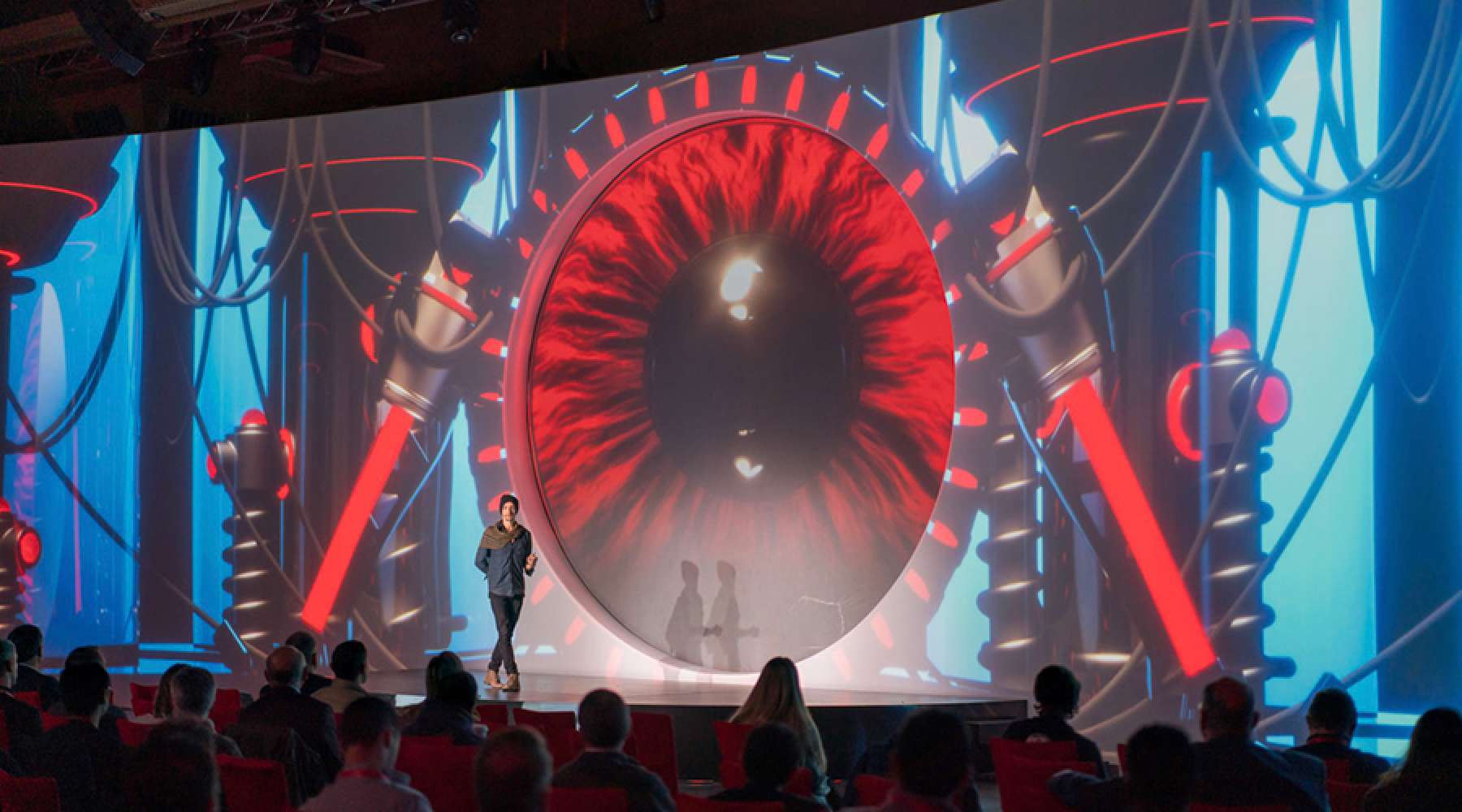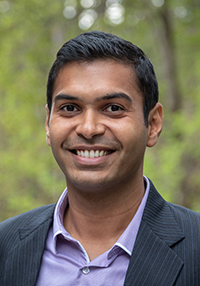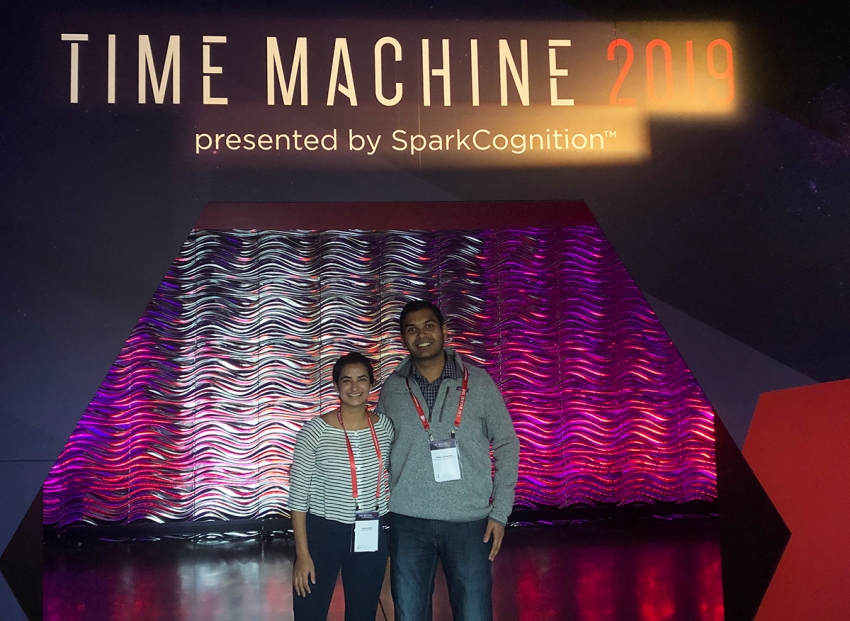

Vishal is a second-year MBA student from India. He is a fellow at the Revers Center of Energy. Prior to Tuck, he spent 6.5 years with Schlumberger. He holds a BE in Electrical Engineering from Birla Institute of Technology & Science, Pilani, India.
Prior to Tuck, I worked for 6.5 years at Schlumberger, a leader in Oil & Gas. One of my objectives behind pursuing an MBA at Tuck was to deepen my understanding of both the Oil & Gas industry as well as the broader energy sector. The Revers Center of Energy at Tuck actively provides resources and opportunities for co-curricular activities to students who are interested in the energy sector. Last month, as a fellow at Revers Center of Energy, I got an opportunity to attend the TimeMachine conference in Austin.
A futuristic ambience and an impressive lineup of speakers provided a glimpse into the future of application of Artificial Intelligence across various industries, including Oil & Gas. The panelists in the Oil & Gas session represented various parts of the industry, from startups such as SparksCognition & Cognite to Operators such as Hunt Oil as well as PE firms, and gave a wide range of perspectives. They identified data quality as one of the strongest barriers to adoption of Artificial Intelligence in this sector. Vast quantities of data, both below the surface as well as above it, is generated by companies during the exploration, development and production phase of an oil field.
However, the industry has a notorious reputation of working in silos, which makes it quite difficult to integrate data. Currently, the industry has seen numerous Proofs of Concept, but still hasn’t adopted Artificial Intelligence solutions on scale. The panelists foresaw an increase in predictive maintenance applications in near future and were hopeful that the role of Artificial Intelligence in production management would pick up in the long term.
In addition to learning about Artificial Intelligence, it was a joy to hear John Chambers, former CEO of Cisco, speak. According to him, the future of a company heavily depends on figuring out the market transitions correctly. He also emphasized on the importance of the culture of a company, since it can either be an enabler or a problem. This reminded me of similar discussions in the Managing Organizations class during my first year.
I also met Anjali Patel T’17 who works for SparksCognition, an AI startup. She was enthusiastic to implement AI solutions and see the results first-hand. In her own words, “I am excited to be a part of the AI revolution and contribute to the future”. Meeting people who work on real-world applications of AI was enriching and added value to my MBA education. I am grateful to Revers Center of Energy for sponsoring my trip to Austin for this conference.
